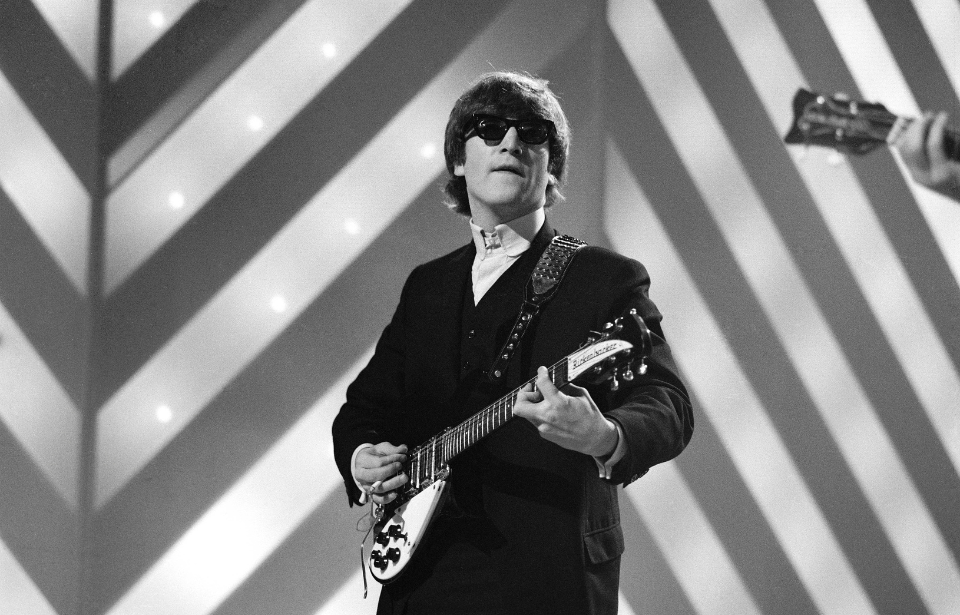There are many artists who dislike the songs they’ve written and sung, usually because of how often they have to perform them. But some songs you would never expect fall into that category. The world loves them, so the artist must too! Surprisingly, that is not the case for John Lennon of the iconic band The Beatles. He actually didn’t like a lot of the songs they wrote. Although many of us would place these songs on our list of favorites, Lennon felt differently than the world on many songs they did over the years and disagreed with his bandmates Paul McCartney, George Harrison, and Ringo Starr about them.
“Yesterday”
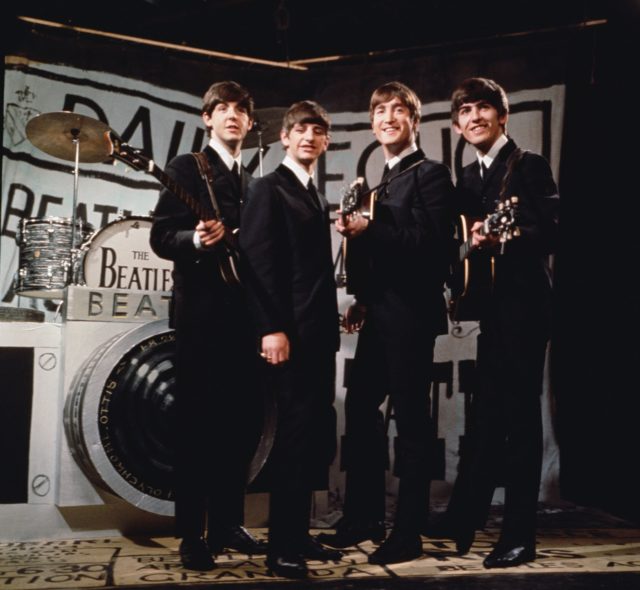
It is hard to believe that John Lennon would hate one of the most beloved Beatles songs of all time. For decades, fans have listened to and loved this 1965 tune off of the album Help!. Over the decades, it has become one of the most covered music tracks in history with over 2,200 renditions recorded since its release. Unfortunately, Lennon did not share his fans’ opinions of the song. He believed that the lyrics were good, but didn’t resolve into any kind of sense. Lennon’s friend, journalist Howard Smith, said, “‘Yesterday’ drove him crazy. People would say, ‘Thank you for writing ‘Yesterday’, I got married to it, what a beautiful song…’ He was always civil. But it drove him nuts.”
“Hello, Goodbye”
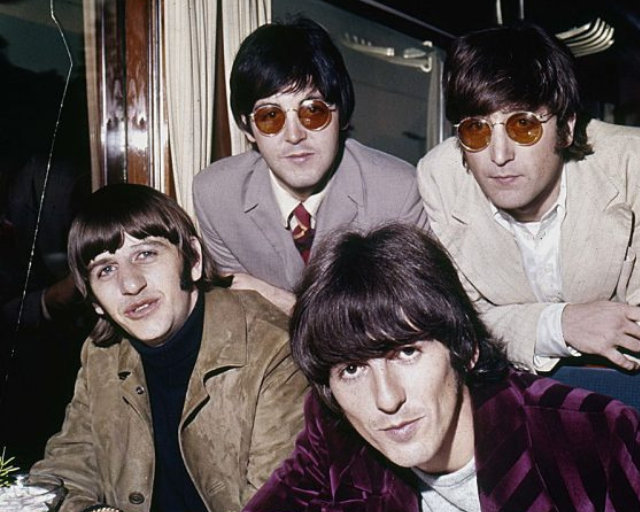
This 1967 song off Magical Mystery Tour earned multiple number one spots for The Beatles. Despite it holding its position at the top for so long, reviews called the song catchy but flat. Eventually, the song began to march a steady decline in the charts, but it wasn’t just the critics that had a distaste for it. The song caused a lot of problems for the band. In a 1980 interview for Playboy, Lennon had some very harsh things to say about “Hello, Goodbye.” “That’s another McCartney. Smells a mile away doesn’t it? An attempt to write a single. It wasn’t a great piece.” He described it as “three minutes of contradictions and meaningless juxtaposition.”
“And Your Bird Can Sing”
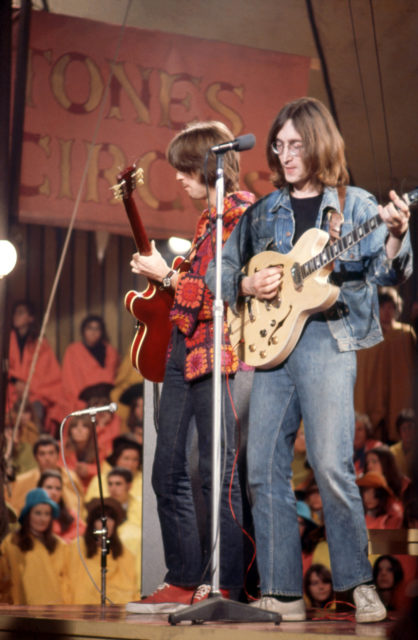
When this song was released on the Revolver album in 1966, many people believed it was written about the rumored rivalry between The Beatles and The Rolling Stones. The two groups were apparently friendly, but The Beatles believed The Rolling Stones to be copiers of theirs. The “bird” in the song is believed to be in reference to Mick Jagger’s then-girlfriend Marianne Faithfull. Lennon never confirmed or denied this, but he did say he considered this song to be “another of my throwaways… fancy paper around an empty box.”
“Run For Your Life”
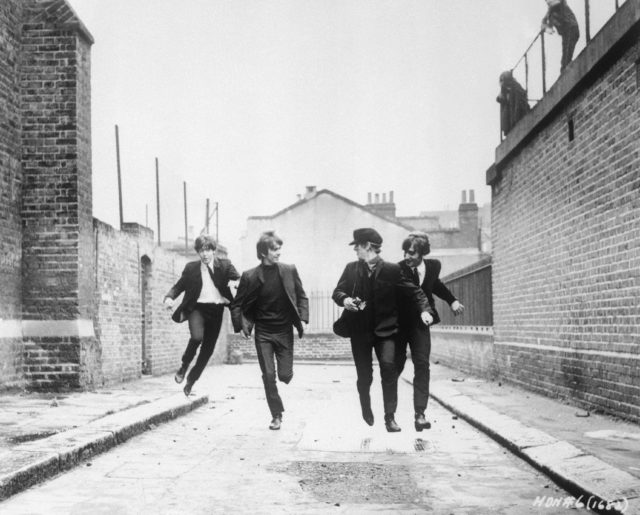
Inspired by Elvis Presley‘s “Baby, Let’s Play House,” this was released in 1965 on the Rubber Soul album. Lennon admitted that he had put very little effort into writing the lyrics of this song, saying, “I never liked ‘Run For Your Life’ because it was a song I just knocked off.” If you listen to the two songs, they are quite similar. Lennon also said that he considered it “Just a sort of throwaway song of mine that I never thought must of.” Despite Lennon’s general dislike for the song, his fellow band member, George Harrison, considered it one of his favorites.
“Eight Days A Week”
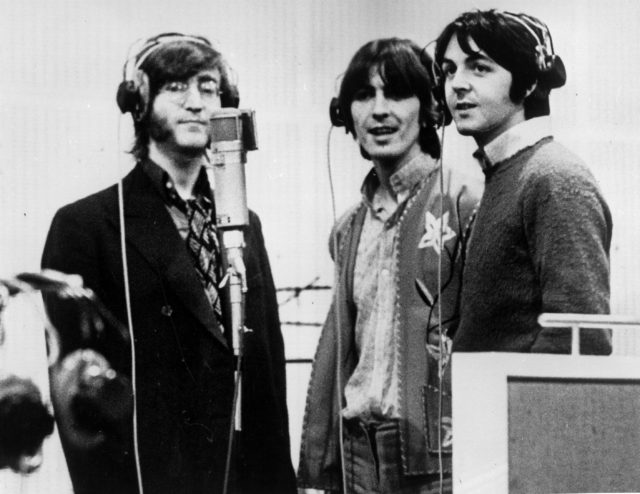
Considering this is one of the most beloved songs of The Beatles, it’s hard to believe it was never played onstage by the band altogether. Released in 1964 on the Beatles For Sale album, it wasn’t until Paul McCartney performed it during his “Out There!” tour in 2013 that the iconic song made it to the live stage. This is probably for good reason, as the song was a nightmare to try and record. Lennon always found it to be an empty song that did nothing but promote the movie Help!. He said, “‘Eight Days A Week’ was never a good song. We struggled to record it and struggled to make it into a song… but it was lousy anyway.”
“Lucy In The Sky With Diamonds”
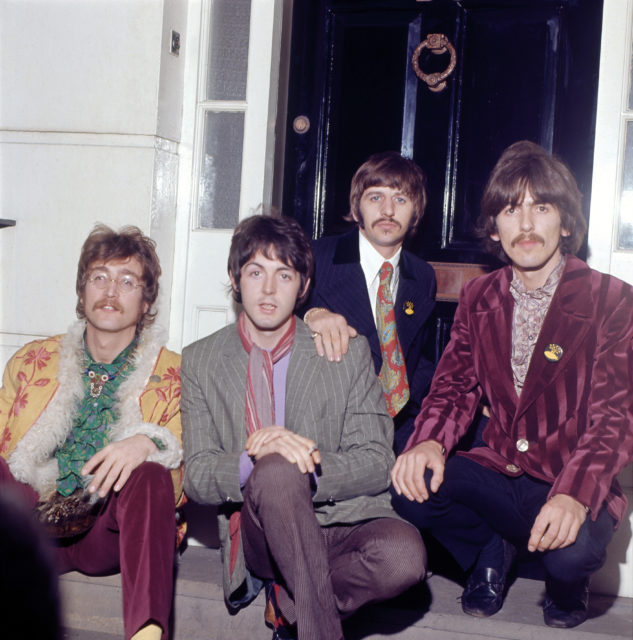
One of the fan-favorite songs on the 1967 album Sgt. Pepper’s Lonely Hearts Club Band, “Lucy In The Sky With Diamonds” has always been rumored to be about drugs. While the lyrics themselves are said to be inspired by the Alice in Wonderland fairytale, the origin of the song allegedly came from Lennon’s four-year-old son. He had drawn a picture of his friend, Lucy O’Donnell, in a sky with diamonds surrounding her. Such a sweet beginning. But that didn’t stop Lennon from hating the song. He said, “It’s abysmal, you know? The track is just terrible.” He went on to say that generally, the track is okay, but it could have been better. It just wasn’t made right, in his opinion.
“Twist and Shout”
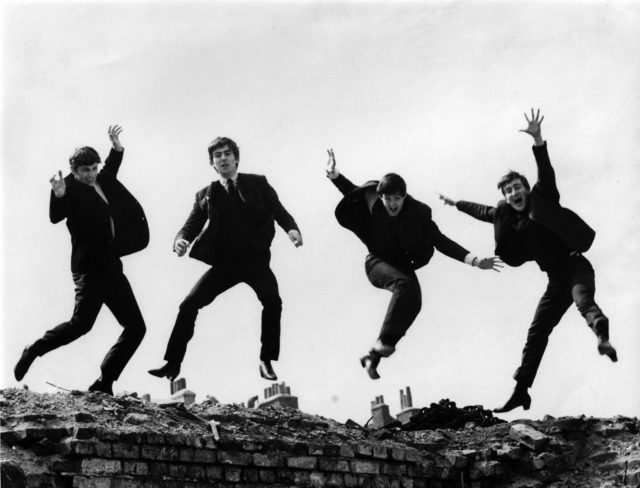
Everyone and their mother knows this song. Released on the 1963 Please Please Me album, this one makes you want to do exactly what the title says – twist and shout! Unfortunately, Lennon always hated this song. That was because it wasn’t actually a Beatles number. It was originally called “Shake It Up, Baby,” written by Phil Medley and Bert Berns (later credited as Bert Russell). It was previously recorded by The Isley Brothers and became one of their hit songs. Lennon hated performing it, saying “it doesn’t feel right, you know. I feel sort of embarrassed… it makes me curl up. I always feel they could do the song much better than me.”
“When I’m Sixty-Four”
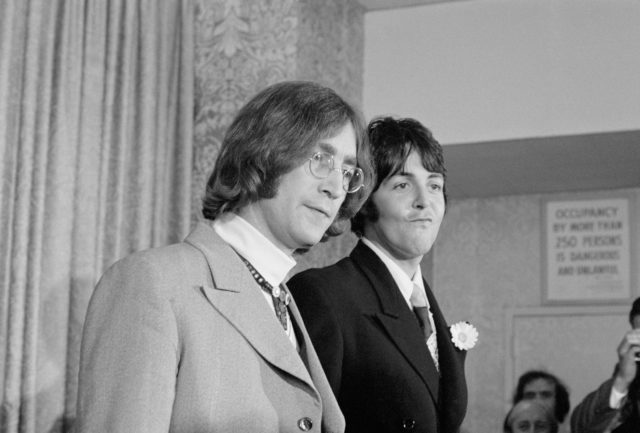
This 1967 Sgt. Pepper’s Lonely Hearts Club Band song had a deep personal connection to Paul McCartney. He had started writing the tune when he was just 15 years old, and brought it out again when his dad had reached his 64th birthday. As lovely as the backstory is for this one, Lennon really despised it. He described McCartney’s songwriting as “granny music [crap]” and said specifically, it was “Paul’s completely. I would never dream of writing a song like that.” The relationship between the two songwriters famously deteriorated over time, and Lennon was not afraid to let the world know his opinion of McCartney’s style of writing.
“Let It Be”
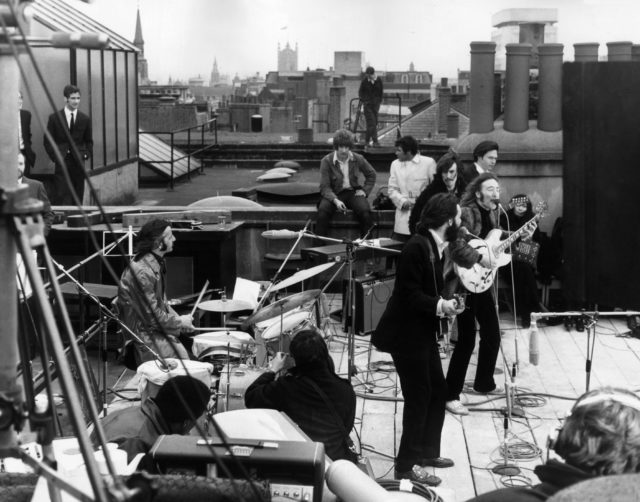
This might arguably be the best-known Beatles song of all time. Released in 1970 on the album of the same name, this song has reached legend status worldwide. Lennon had a different interpretation of the tune. He said, “That’s Paul. What can you say? Nothing to do with the Beatles. It could’ve been Wings. I don’t know what he’s thinking when he writes ‘Let It Be.'” Wings was a band formed by McCartney after the break up of The Beatles in 1970. Lennon seems to think “Let It Be” was written with one of McCartney’s feet already out the door.
“Across the Universe”
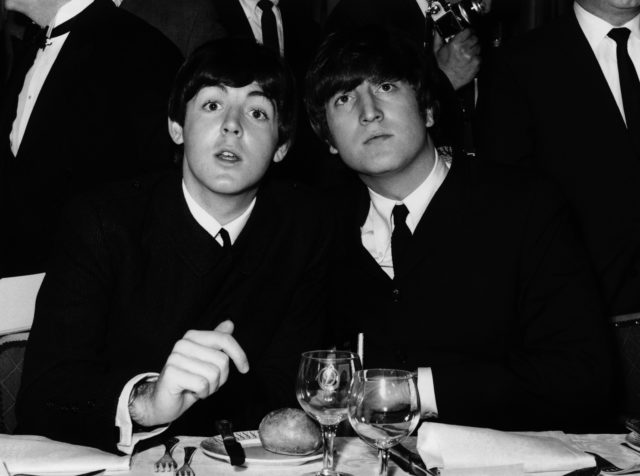
“Across the Universe,” released on the 1970 album Let It Be, seemed to be one of those songs that Lennon had really high hopes for. He knew he was on track to writing a beautiful song, but couldn’t quite get it right and said, “it was a lousy track of a great song, and I was so disappointed by it.” He blamed his distaste for the tune on his fellow bandmates for not “supporting me or helping me with it.”
More from us: The Only Performance by John Lennon’s ‘Other’ Supergroup Didn’t Air Until 28 Years After It Was Recorded
He started to sense his and McCartney’s rivalry in the later years of the band’s career, saying, “Paul would… sort of subconsciously try and destroy a great song… we’d spend hours doing little detailed cleaning-ups of Paul’s songs; when it came to mine, especially if it was a great song like ‘Strawberry Fields’ or ‘Across the Universe’, somehow this atmosphere of looseness and casualness and experimentation would creep in.”
